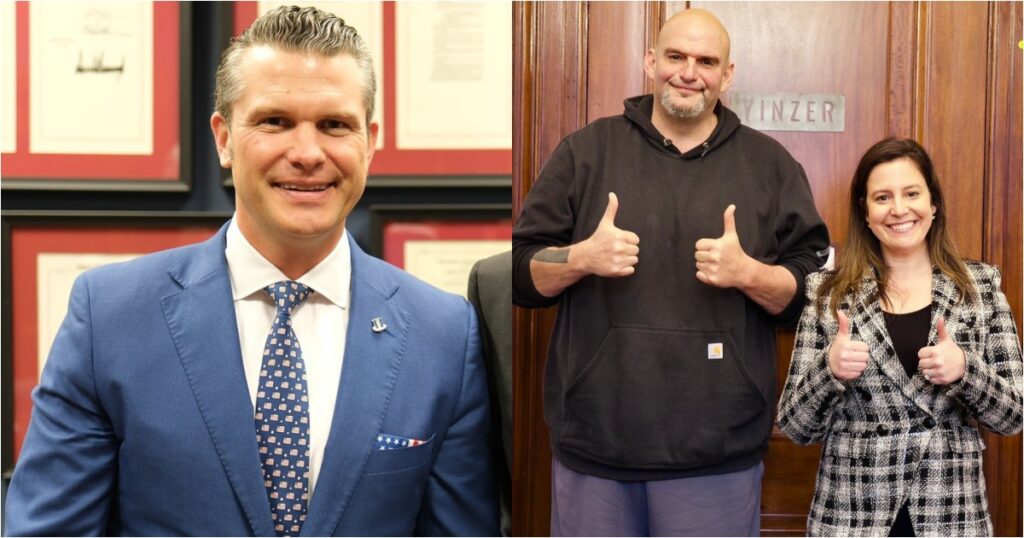In recent news, Senator John Fetterman of Pennsylvania has made headlines by meeting with prominent figures appointed by former President Donald Trump, specifically Pete Hegseth for Secretary of Defense and Elise Stefanik for U.N. Ambassador. This development has sparked mixed reactions, with some Democrats expressing anger over Fetterman’s willingness to engage with Trump’s nominees while right-leaning commentators have applauded his open-mindedness. The situation raises questions about how Fetterman, known for his progressive stance, has emerged as a seemingly centrist voice within the Democratic Senate caucus, especially following his health challenges.
Fetterman took to social media, publicly reaffirming his commitment to an open-minded approach regarding Trump’s Cabinet nominees. In his post, he emphasized the importance of an informed opinion and stated that it is both appropriate and a senator’s responsibility to engage in discussions with nominees from the opposing party. By highlighting his recent conversations with figures like Elise Stefanik and Pete Hegseth, Fetterman has positioned himself as a senator willing to bridge party divides, reflecting a willingness to listen and evaluate rather than solely oppose.
This willingness to engage with Trump’s representatives has drawn attention not only for its political implications but also for its character. Fetterman’s approach contrasts sharply with the more confrontational stance often adopted by his Democratic colleagues. The reactions from the political spectrum demonstrate a broader commentary on bipartisan dialogue. While some view Fetterman’s actions as a betrayal of Democratic values, others see a refreshing example of political pragmatism. Indeed, Fetterman’s readiness to meet with controversial figures signifies a potential shift towards more productive exchanges in a deeply polarized political environment.
Social media commentary has highlighted Fetterman’s unique position in Congress, with one notable observation noting that he appears to be one of the most reasonable Democrats, especially after undergoing significant health challenges. His ability to engage with a wide array of political perspectives while maintaining his core beliefs raises interesting questions about how personal experiences can influence political behavior. Some commentators have embarked on a humorous take, juxtaposing his health recovery with newfound diplomatic tactics in the Senate, suggesting that even hardship has a transformative effect on a politician’s approach.
Fetterman’s willingness to vote in favor of several of Trump’s nominees also raises intriguing issues about party loyalty and legislative effectiveness. While an explicit prediction of his vote isn’t made certain, the general expectation is that he may lean towards approving multiple appointments. Such actions could bolster his image as a senator prioritizing Pennsylvania’s interests over strict adherence to party lines. This stance may ultimately serve as a model for other members of his party, illustrating that collaboration and openness can yield better governmental outcomes, especially in a legislative body where bipartisan cooperation has become increasingly rare.
In conclusion, John Fetterman’s recent engagements with Trump’s nominees have sparked a significant political discourse about bipartisanship and the role of senators in today’s polarized climate. His readiness to meet with individuals from the opposing party, combined with his open-minded philosophy, highlights a potential pathway for more constructive political dialogue. Furthermore, Fetterman’s actions invite contemplation about the efficacy of legislation, his evolving role in the Senate, and the broader implications for bipartisan relationships in American politics, thus emphasizing the need for a more nuanced understanding of political affiliation and cooperation in the modern era.

